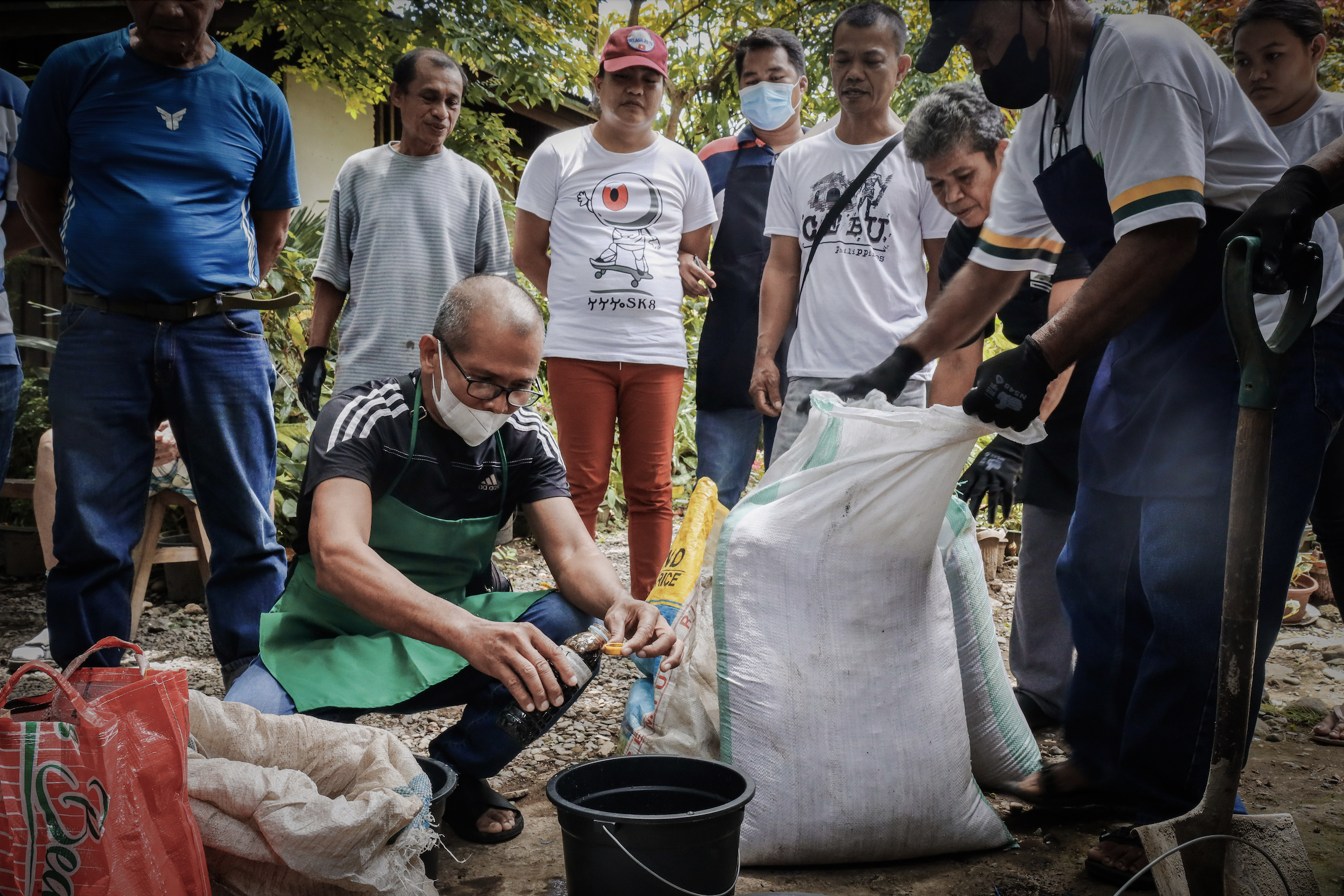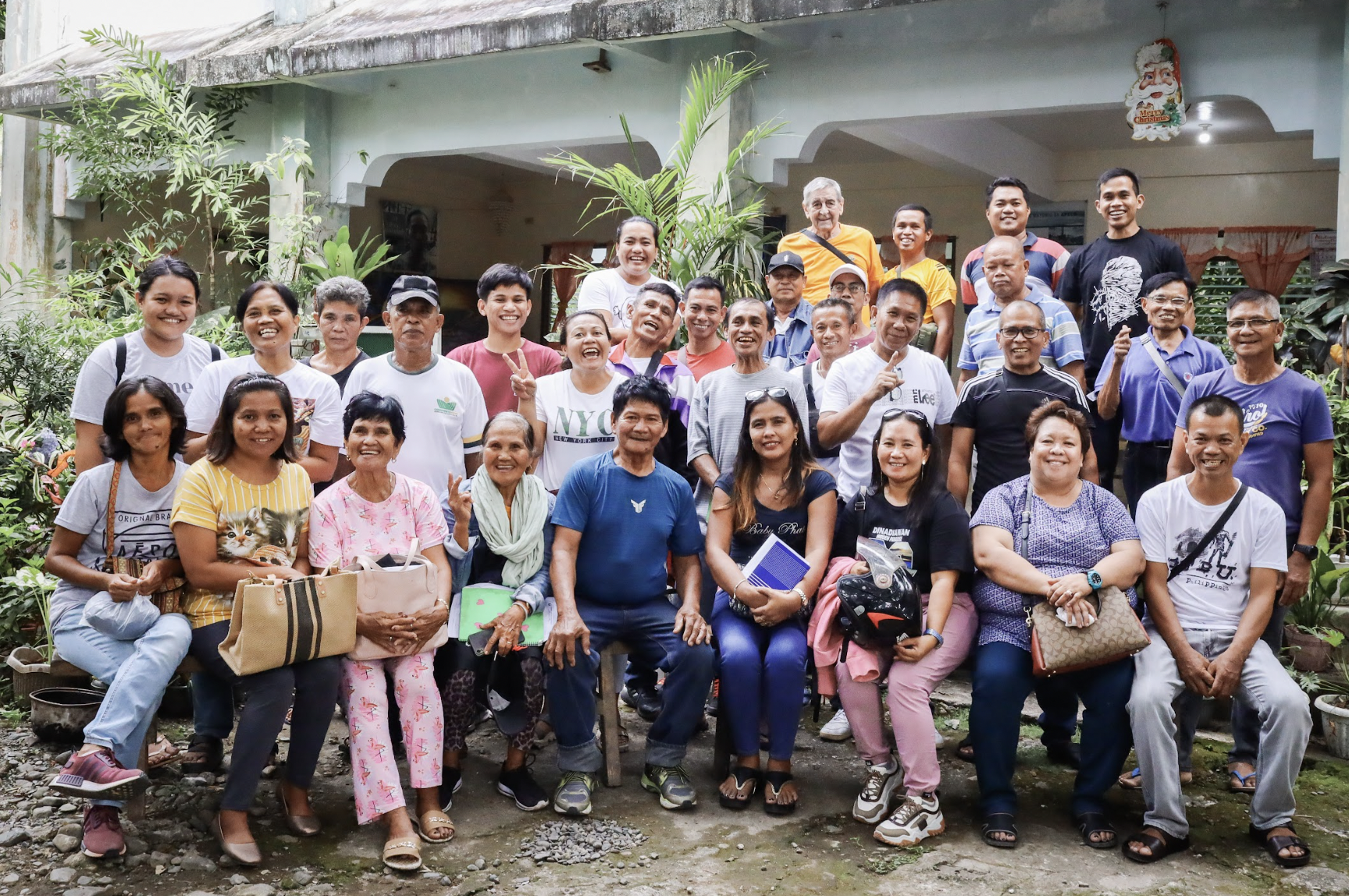ECONOMIC RIGHTS
‘Kaagapay sa Hanapbuhay’ gathers farming communities from Luzon and Mindanao to improve food security and resilience

Agriculture is the main driving force of the economy in rural areas where most Filipinos live. As farming is deeply ingrained in Filipino culture, growing healthier crops with higher revenue can inspire a call for unity.
Last May 3 to 5, 2023, rural communities gathered in a 3-day livelihood skills learning exchange program titled “Kaagapay sa Hanapbuhay.” Agrarian reform beneficiaries (ARB) from Mawab, Davao De Oro flew to Luzon to gather with other local communities of Aurora Province to diversify their food source and livelihood options.
In celebration of “Buwan ng Magsasaka at Mangingisda (Month of Farmers and Fishermen)” this May 2023, this activity promotes the indispensable role of farming in creating sustainable income-generating opportunities for rural communities.

Communities from Mawab, Davao de Oro and the province of Aurora gathered in “Kaagapay sa Hanapbuhay,” a 3-day livelihood skills learning exchange program
The Kaagapay sa Hanapbuhay program aims to empower Rights Holders Groups (RHGs) who aspire to live sustainably.
It was a collaborative engagement between Nueva Visayas Agrarian Reform Cooperative (NUVIARCO) and local communities in Aurora with the assistance of the Advocates for Human Rights in Aurora Province (AHRAP, Inc.) and Initiatives for Dialogue and Empowerment through Alternative Legal Services (IDEALS). Voice Global, a grant facility that empowers rights holders and marginalized communities, funded it with a small grant through YGOAL’s Innovation Studio. YGOAL’s Innovation Studio is a linking and learning initiative aiming to support grantee-led innovations beyond their Voice projects.
For many years, families in rural areas suffered from low incomes and limited employment opportunities. This program sets the scene in augmenting rural communities’ sources of income while imparting the importance of a healthier lifestyle.
Through the program’s skills development training, participants gained the essential knowledge and skills to create self-sustaining livelihood and income projects, particularly in organic farming, rice retailing (bigasan), and hog farming. They now have a better understanding of the sources of income available to their respective communities.
“Organic farming is simple and the materials are also accessible because we can get everything from our farms. I am truly blessed to be included in this training since I learned how to reduce farming expenses,” Joey Casalio, farmer from Baler.
Farmers as Teachers
NUVIARCO is currently undergoing an organic farming project called Project GROW, developed by IDEALS, with the support of Voice and the Foundation for Agrarian Reform Cooperatives in Mindanao (FARMCOOP). With the skills and knowledge on organic farming that they learned, NUVIARCO farmers facilitated an organic backyard gardening training for the RHGs in Aurora .
Together with Bernabe Baya, a technical staff of FARMCOOP, they conducted a lecture and demonstrated production of several organic fertilizers such as indigenous microorganisms (IMO), fish amino acid (FAA), and fermented plant juice (FPJ).
“This program is helpful to NUVIARCO because while you are teaching others, you are learning. It’s also important to share the knowledge you have with others,” Baya said. “We can also reach out even to those who don’t have experience in organic farming and help them avoid toxic chemicals that people eat.”
Teoderico Jancinal, ARB and NUVIARCO manager, also stressed the significance of developing organic agriculture in local communities in the country.
According to him, “We are glad to have come here from Mindanao so that we can share our expertise on organic farming. This training is very crucial since the food we consume every day must be organic if we want to be healthier and live longer.”
Before transitioning to organic farming practices, NUVIARCO farmers sold their crops for as low as 3 pesos per kilo. They now charge more than thrice for their low-chemical bananas.
Selling organic crops has helped the families in NUVIARCO meet their basic needs. Given their good experience in organic farming, they now share their knowledge and encourage others to practice organic farming as well.
Helping Communities Help Themselves
AHRAP is an organization committed to helping underprivileged communities in Aurora achieve their goals for growth and development.
In 2019, they worked with Voice on a project that supported the elderly and youth of their community partners in defending their fundamental rights. These community partners participated in the learning exchange program to foster their empowerment.
Majority of these communities already manage community gardens. These gardens serve as pathways for hope by providing a reliable food supply and income stream. With the knowledge learned from the training, it can help make their gardens organic and further help address food security and health-related issues.
One of the participants is 20-year-old Christian Rufo. He is the president of the Youth for Peace and Prosperity (YFPAP), an association aiming to guide and provide income opportunities to the wayward youth in Baler through activities such as their community garden.
According to him, “Here in our province, the main source of income is farming. But we are not that familiar with organic farming yet. Joining these kinds of seminars and training is helpful, particularly for the youth. We learned a lot. We are very thankful.”
After the organic backyard gardening training, RHGs from Aurora then imparted their experience in establishing their bigasan and hog-raising projects using the P30,000 capital funding each barangays received from Voice.
During the community visit, they narrated the first phase of the hog raising project of Brgy. Dikildit in Aurora, launched in December 2022. They used the capital to buy several pigs, feeds, and vitamins. Though they have no professional training in hog raising, it was a collaborative effort led by community members with pig farm experience.
Utilizing funds from the first phase, they bought a second batch of hogs in March 2023. Community members are working hard to buy an adult female pig for breeding to distribute more pigs to more community members.
They also mentioned that they started making IMO from what they learned from NUVIARCO’s training and immediately applied it to their pig pens. According to them, the 3-day training grew their interest in attending an organic hog-raising training.
Furthermore, Brgy. Dicalayungan and Brgy. Dinadiawan also shared their experiences in developing their bigasan projects.
Since they are only getting started, they admitted that their main challenge is the debts of the locals. The fund allotted for re-investment to their project is dormant. To address this issue, they developed a system wherein debts are limited to 10 kilos of rice per household and have proper documentation, signed by both parties.
Nevertheless, these bigasan projects of both barangays have created job growth and provided members with income opportunities.
Aside from the bigasan, they also help members develop their own backyard garden. They aim to establish a community garden as additional income for their members using what they learned from the organic backyard gardening training.
In those discussions, NUVIARCO learned about the necessary steps and possible challenges in setting up the in demand enterprises in the Philippines, such as rice retailing and hog-raising.
These communities have different projects but share one valuable strength, the drive to continuously increase their income streams to improve their way of living.
Luzon and Mindanao are on the opposite ends of the Philippines but this initiative forged a link between communities separated by distance. With the help of Voice Global, two different farming groups became one to learn from each other and to support each other in the fight to combat poverty, increase food security, and build resilience.
